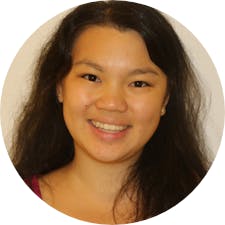PSA to first-years: one of the items on the Chronicle's 101 things to before you graduate is "go to the activities fair as a freshman, sign-up for 10+ clubs, and get spammed with emails for the next four years." The activities fair is today. Go out on the quad and enjoy all the resources that will only be available to you for four years.
Also, another piece of advice: Don't do too much. Don't be so stressed, so busy, that you can't actually enjoy your four years here.
These were the conflicting messages that I first recall hearing during O-week, but have continued to hear– that we should make maximum use of the resources (particularly those outside the classroom) available to us but at the same time, not overcommit.
Over the summer, I met with a cousin who was born and raised in the UK and was currently enrolled in a public university in the UK. During our conversation comparing our college university experiences, I had trouble justifying two things:
1. Duke's tuition.
2. The pressure to do non-academic things outside of class.
The first point is nothing new. In the Chronicle alone, alumni, parents, and the Editorial Board have spoken out against tuition hikes in past years. For some perspective, Duke's recent commitment to a $15 minimum wage by 2019 means that an employee working 40 hours a week at minimum for 52 weeks a year makes $31,200, before taxes. Compare that with the cost of attendance.
But this second point is also nothing new. In "The Organization Kid", an essay in the Atlantic published 16 years ago (in 2001!), David Brooks talks about his experiences talking with Princeton students at the time and states that student schedules sounded “like a session of Future Workaholics of America”
Additionally, in a blog that no longer exists, the daughter of "Tiger Mom" Amy Chua, at the time a student at Harvard, wrote an article entitled "Do Less, Read More: A Defense of School" that claims that extracurricular pressure is often even more stressful than academics– that what we "do" in college is no longer just (or even primarily) what we study. It's what happens outside of the classroom that accounts for our college experience. In her words, “Academic excellence – which has driven us all for at least twelve years of school– is no longer the metric of success. […] If you’re not president of three organizations, keynote speaker at a summit on minorities in politics, and co-founding a start-up in your free time, you’re doing it wrong.”
The Wikipedia page on extracurricular activities itself warns that the article may have too much of an American perspective. If Wikipedia is the sacred source of all information, then are extracurricular activities really a ‘Murican construction? And where did this pressure to be involved originate from?
The most obvious link is to the process that led all of us to Duke. If the admissions process rewards kids who meaningfully participate in extracurriculars in high school, then it shouldn't be a surprise that those same kids will want to meaningfully participate in extracurriculars in college. If one were to ask if it were okay to take a normal course-load and only be involved in a handful of extracurriculars, to eat a meal alone and just unwind, to just be… a nerd, the polite, non-judgmental answer would be "Yes, of course that's fine. You do you (and other people, if that's your thing)."
But when confronted with the reality, when everyone else seemingly wants to be this busy, when people both at and outside of Duke praise the resource-rich environment, when large empty blocks on my Google Calendar worry me, can’t we acknowledge that stress and busyness aren’t some sort of status symbol, and that it’s actually just… kind of stressful?
On the Davidson Institute's website, J. Webb writes, "It is such existential issues that lead many of our gifted individuals to bury themselves so intensively in "causes" (whether these causes are academics, political or social causes, or cults)." A Washington Post article talking about adults— not just college students—being “busy” all the time quotes Ben Hunnicutt, one of the few leisure scholars, as saying: “Work has become central in our lives, answering the religious questions of ‘Who are you?’ and ‘How do you find meaning and purpose in your life?’”
Lastly, it’s worth mentioning that the reasons many Duke students are “busy” are different from those of a large proportion of college students nationwide. 40 percent of undergraduate students in the US work at least 30 hours a week alongside classes (Duke caps work-study at just under 20 hours), and a quarter of undergraduates are single parents (I doubt statistics are needed to convince people that the proportion is significantly less at Duke). Drawing this contrast seems to discount the magnitude of the problem at Duke, but whether that eases the difficulty of deciding how to balance everything is debatable. Best of luck.
Amy Fan is a Trinity sophomore. Her column, "fangirling," runs on alternate Wednesdays.
Get The Chronicle straight to your inbox
Signup for our weekly newsletter. Cancel at any time.

Amy Fan is a Trinity senior. Her column, "fangirling," runs on alternate Thursdays.
